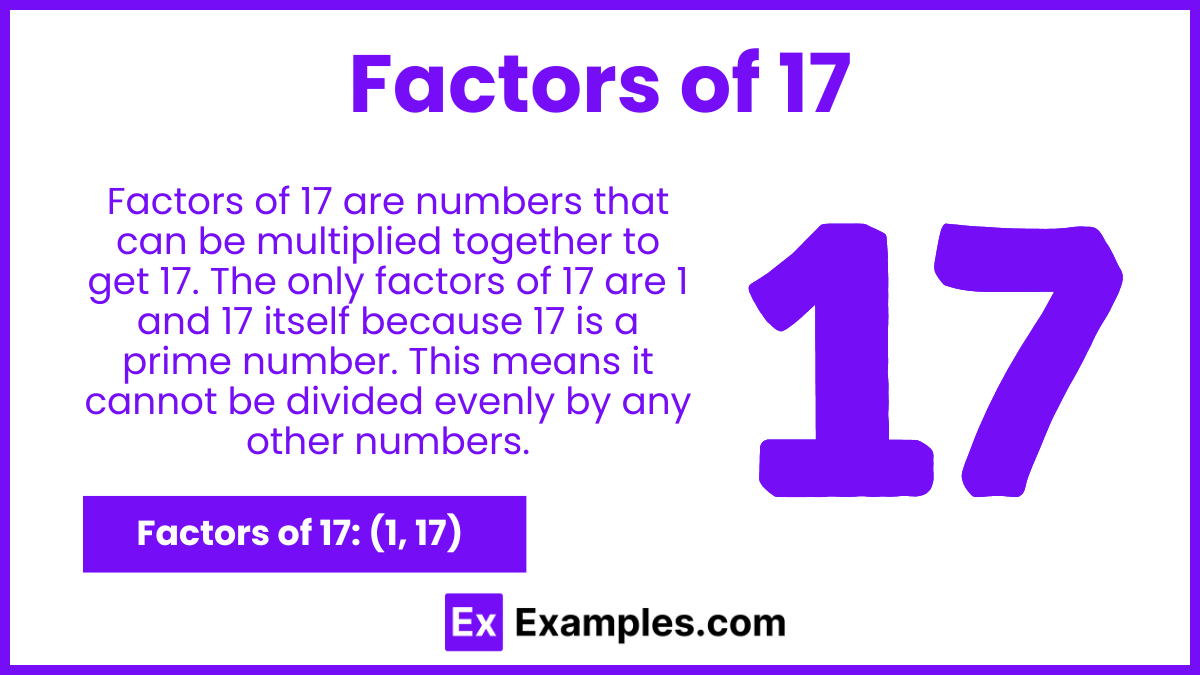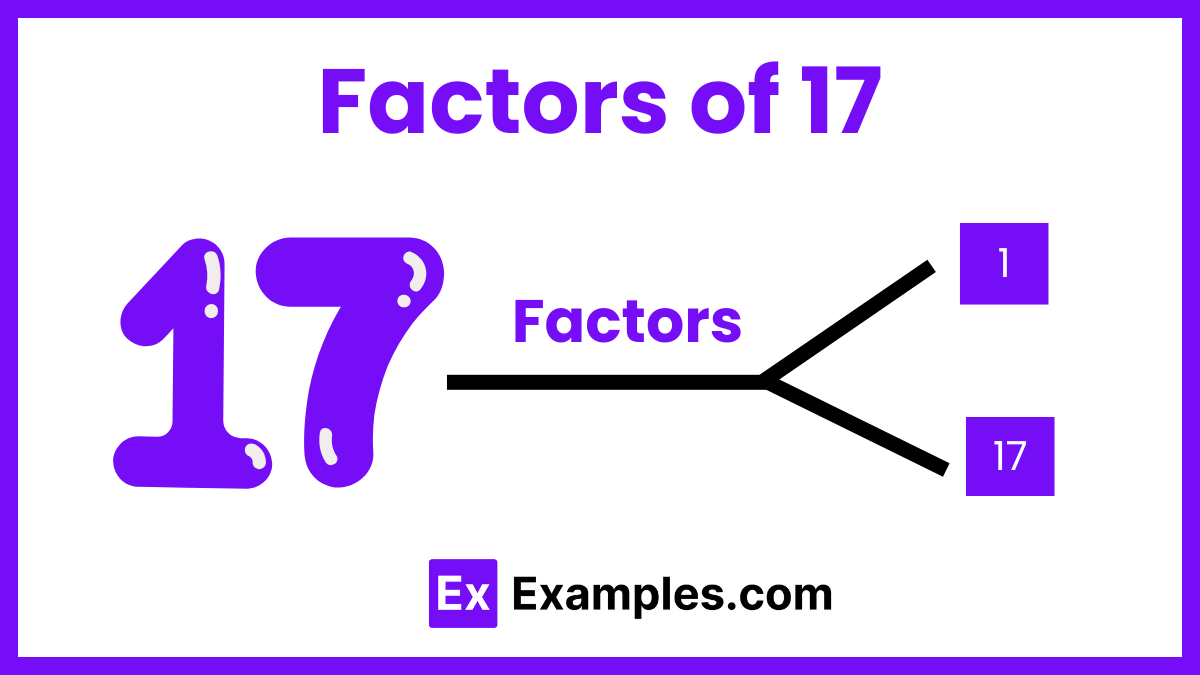Which of the following is a factor of 17?
1
2
4
8

The factors of 17 are 1 and 17. As a prime number, 17 has only these two distinct positive divisors. Prime numbers like 17 cannot be divided evenly by any number other than 1 and themselves. This unique property is significant in various mathematical fields, including number theory and cryptography. Knowing that 17 has no other factors simplifies many mathematical computations and problem-solving scenarios. Its prime status indicates that it cannot be broken down further into other multiplicative components, emphasizing its importance in the study and application of mathematics.

The factors of 17 are 1 and 17. This is because 17 is a prime number, meaning it has exactly two distinct positive divisors: itself and 1. Prime numbers are unique in that they cannot be divided evenly by any other numbers. This property makes 17 significant in various mathematical fields, such as number theory and cryptography. Understanding that 17 has no other factors simplifies many mathematical computations and problem-solving.
Calculating the prime factors of a number involves identifying which prime numbers can be multiplied together to result in the original number. Since 17 is a prime number, its only prime factor is 17 itself. Here’s a step-by-step guide to calculate the prime factors of 17:
17÷1=17
1 divides 17 exactly, leaving no remainder. Hence, 1 is a factor of 17.
17÷17=1
17 divides 17 exactly, leaving no remainder. Therefore, 17 is a factor of 17.
17÷2=8.5
2 does not divide 17 exactly, as it leaves a remainder. Thus, 2 is not a factor of 17.
17÷3=5.6667
3 does not divide 17 exactly, as it leaves a remainder. Therefore, 3 is not a factor of 17.
17÷5=3.4
5 does not divide 17 exactly, as it leaves a remainder. Hence, 5 is not a factor of 17.
Understanding the factors of a number is essential in various aspects of mathematics, from basic arithmetic to complex algebra. The factors of a number are integers that can be multiplied together to produce that number. For example, the factors of 17 are the numbers that, when multiplied, result in 17. Here are some tips to help you understand and determine the factors of 17:
Yes, 17 is a prime number. This means it has only two distinct positive divisors: 1 and itself (17).
The greatest common factor (GCF) of 17 with any other number is always 1, unless the other number is also 17. For example, the GCF of 17 and 34 is 17.
A factor tree is used to break down a number into its prime factors. Since 17 is already a prime number, its factor tree would simply be 17 with no further branches.
To determine if a number is a factor of 17, you can divide 17 by that number. If the result is an integer (no remainder), then the number is a factor of 17. However, since 17 is prime, only 1 and 17 meet this criterion.
The positive pair factors of 17 are (1, 17). The negative pair factors of 17 are (-1, -17).
The sum of the factors of 17 is 18, calculated by adding its factors: 1 + 17 = 18.
Text prompt
Add Tone
10 Examples of Public speaking
20 Examples of Gas lighting
Which of the following is a factor of 17?
1
2
4
8
Which of the following numbers is a factor of 17?
3
5
17
7
Which of the following is a prime number among these factors?
2
5
7
17
What is the result of 17 divided by its only other factor besides 1?
1
17
0
2
Which of these numbers is not a factor of 17?
1
17
34
None
How many total factors does 17 have?
1
2
3
4
What is the smallest factor of 17?
0
17
1
2
Which statement is true about the factors of 17?
17 has three factors.
17 has only two factors.
17 has no factors.
17 has four factors.
Which number among these is not a factor of 17?
1
17
9
8
What does the number 17 and the number 1 have in common in terms of factors?
Both are factors of each other.
17 is a factor of 1.
1 is a factor of 17.
Neither has any factors.
Before you leave, take our quick quiz to enhance your learning!

